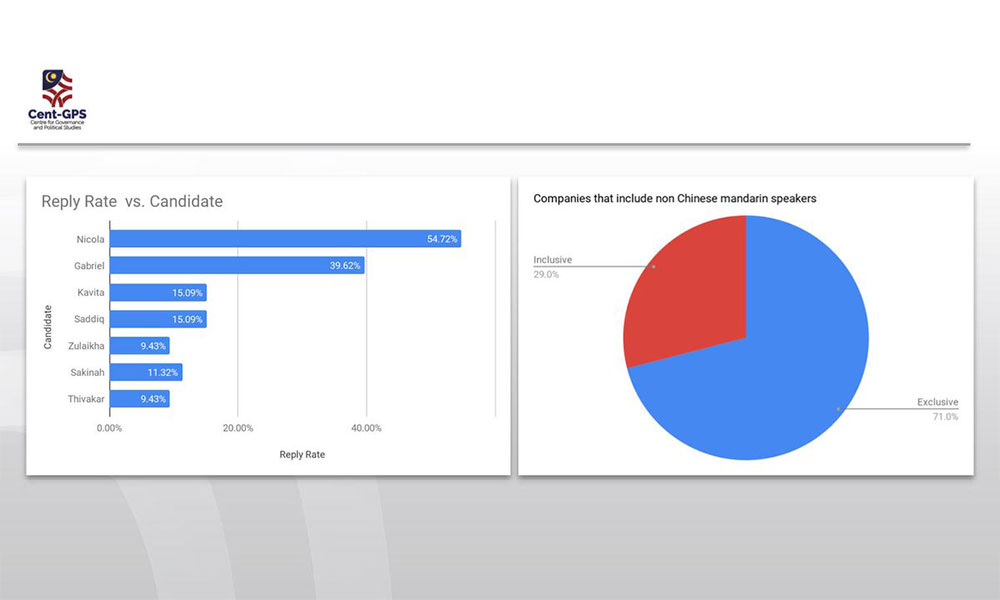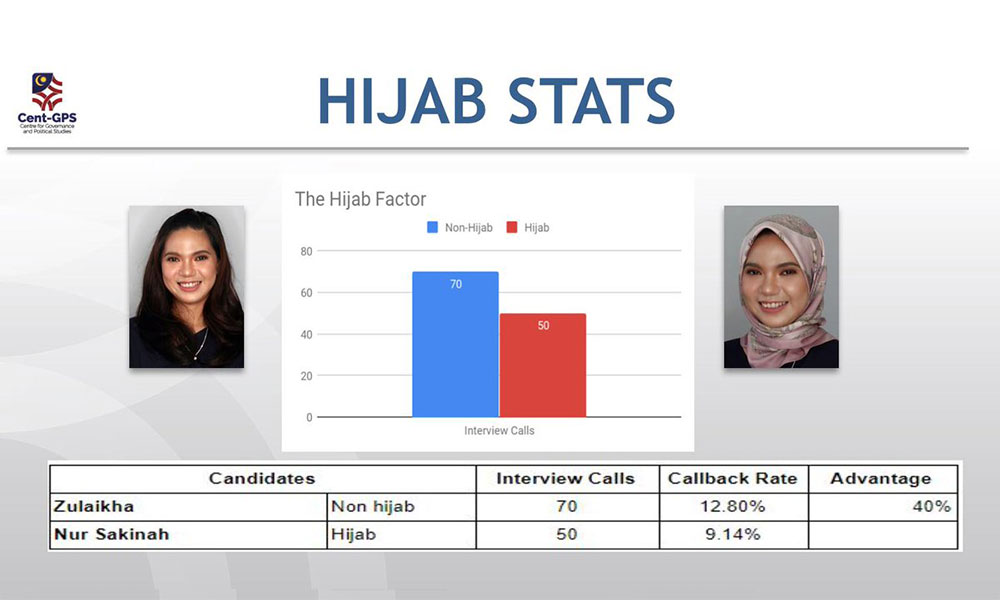
Using fictitious names with identical qualifications, a research team has learnt that Malaysian private sector employers have a strong bias against hiring Indian candidates.
A study into recruitment practices by Cent GPS Research exposed a racial bias against ethnic Indian applicants who scored the least number of callbacks to attend job interviews.
Its director Zaidel Baharuddin said the study saw seven fictitious characters - three Malays, two Chinese and two Indians - each sending 547 applications for vacancies targeting business-degree holders.
"Our fictitious Chinese candidates dominated the callbacks by a huge margin.
"The two lowest scoring candidates are the Malay male and the Indian male," said Zaidel who presented summary findings from the study this morning.
The Indian male candidate scored 3.66 percent callback rate while the Malay male scored 7.86 percent callback rates.
Based on the findings, Zaidel said the male and female Chinese candidates had obtained overwhelmingly more job callbacks than their Malay and Indian counterparts, at a rate of 43.88 percent and 32.72 percent each.
Zaidel said the research team's initial hypotheses was that ethnic Malays were the most discriminated against in Malaysia's private sector, but that the findings proved otherwise.

For purposes of the study, Zaidel said two researchers - one male and one female - were assigned to play the role of seven job seekers with similar academic qualifications, a three-month internship experience, and an added intermediate level fluency in Mandarin, on top of Bahasa Malaysia and English proficiencies.
"The only key difference (based on their resumes) was their skin colour (ethnicity)," said Zaidel, adding that this was identified through a passport photo attached with the applicants' resumes.
Two Malay candidates and two Indian candidates each scored less than 10 pct callback rate from their 547 applications.
Among the two Malay female candidates, Zaidel said there was also a bias against the candidate who wore a head scarf.

"A Malay woman without a hijab gets more callbacks than a Malay woman who wears a hijab," he said, adding that the study did not take into account additional biases including possible family commitments of a married woman.
In terms of the language requirements, Zaidel said despite all seven candidates stating an intermediate proficiency in their abilities to communicate in Mandarin, the study's results again showed a bias in favour of the two Chinese applicants.
"Nicola (a Chinese candidate) received a 55 percent callback rate from these Mandarin-required firms, while Thivakar (an Indian candidate) only got nine percent.
"This leads us to the conclusion that, for the most part, when companies list 'Mandarin required' in their advertisement, it is actually a filter to hire Chinese candidates," he explained.
"This study is important because it shows us just how discriminatory our private sector really is.
"Even as candidates had the same qualifications, education and experience, the ethnicity of a candidate still plays a vital role in the success of a job application," said Zaidel in concluding his presentation today.
The applications were sent in response to online advertisements on job recruitment sites and Zaidel said most of the companies were non-listed SMEs, pointing out that bigger listed companies would generally have its own diversity policies for recruitment.
Quizzed on whether the government should intervene to encourage more diversity in the private sector, Zaidel said Cent GPS Research believes the solution should be left to market forces, where companies could react to higher demand for better recruitment practices. - Mkini



No comments:
Post a Comment
Note: Only a member of this blog may post a comment.